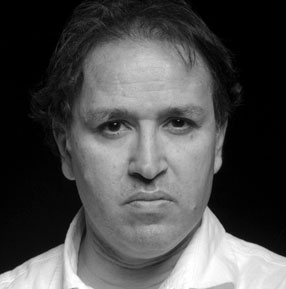Ali! Ali!
It’s late and your heart skips watching
that young man fight. The Garden, the left
jab lashes like a frog’s tongue catching
a fly. There you go again with an undeft
image to his arthropod conceit. You know he’ll win,
an old victory. They hate him there, sore
that he joined your faith, a strapping boy, skin
hairless almost feminine. He’d kept you up before,
your father waking you at dawn to watch the thrilla,
the rumble, even the shamble in Nagasaki
fighting a wrestler, a prone Japanese guerrilla,
bruising the elegant legs. What was he
telling you then in that unplanned night shift?
That there’s honor in defeat, that you’d get your chance?
The referee says, “Alright boys,” and you drift
to Ralph Allison’s blind nightmarish dance.
The doctor checks Jones’s right eye, but the crowd
boos him. There’d been a scandal in slow mo.
No one wants a dead man shouting aloud
maricon! At the end of round five, he’s slow
and you want to lead him back to his corner
though you know he’ll win, a knockout,
probably, but he wastes two rounds looking for
a strong straight right as Banks flouts
a second wind. Then in a flash—you’re about
to adjust the volume or put a dish away—
Cooper is a cyclops, blood oozing out
of his one open eye, swinging wildly
like a wounded spider. Lyle’s coach protests.
Years later he’ll do the rope-a-dope to declaim
on purgatory. And later yet, in an airport
he writes a dedication to you, signs his name,
on a leaflet, “Life After Death.” Tonight again
your beloved brother squeaks by, a TKO.
His victory’s slower, but that’s where he’ll remain,
a light in your heart that never ceased to glow.
Copyright © 2016 by Khaled Mattawa. Originally published on June 4, 2016, by the Academy of American Poets.
“I began writing this poem a few years ago while watching a series of Ali fights broadcast on a sports channel. The experience reminded me of how my family in Libya used to wake up at 3:00 a.m. in the 1970s to watch his fights—all were broadcast for prime time in America but were watched around the world live at whatever hour that may have been. The poem tries to capture the sense of special fondness that my family and native community had for Ali as well as admiration for Ali’s athleticism, beauty, and grace. I used rhyme in this poem, which I rarely do, as a salute to Ali’s poetry, but never finished the poem, leaving the last quatrain unfinished. I think I did not finish the poem because it seemed like a private statement in its story and its sentiments. I revisited the poem upon Ali’s passing on Friday, June 3, and it spoke to the sense of loss and affection I felt for the champ, which was reflected in the many responses I read and heard. I decided to finish the last quatrain and let the poem join in the chorus of grief and celebration of Ali.”
—Khaled Mattawa

